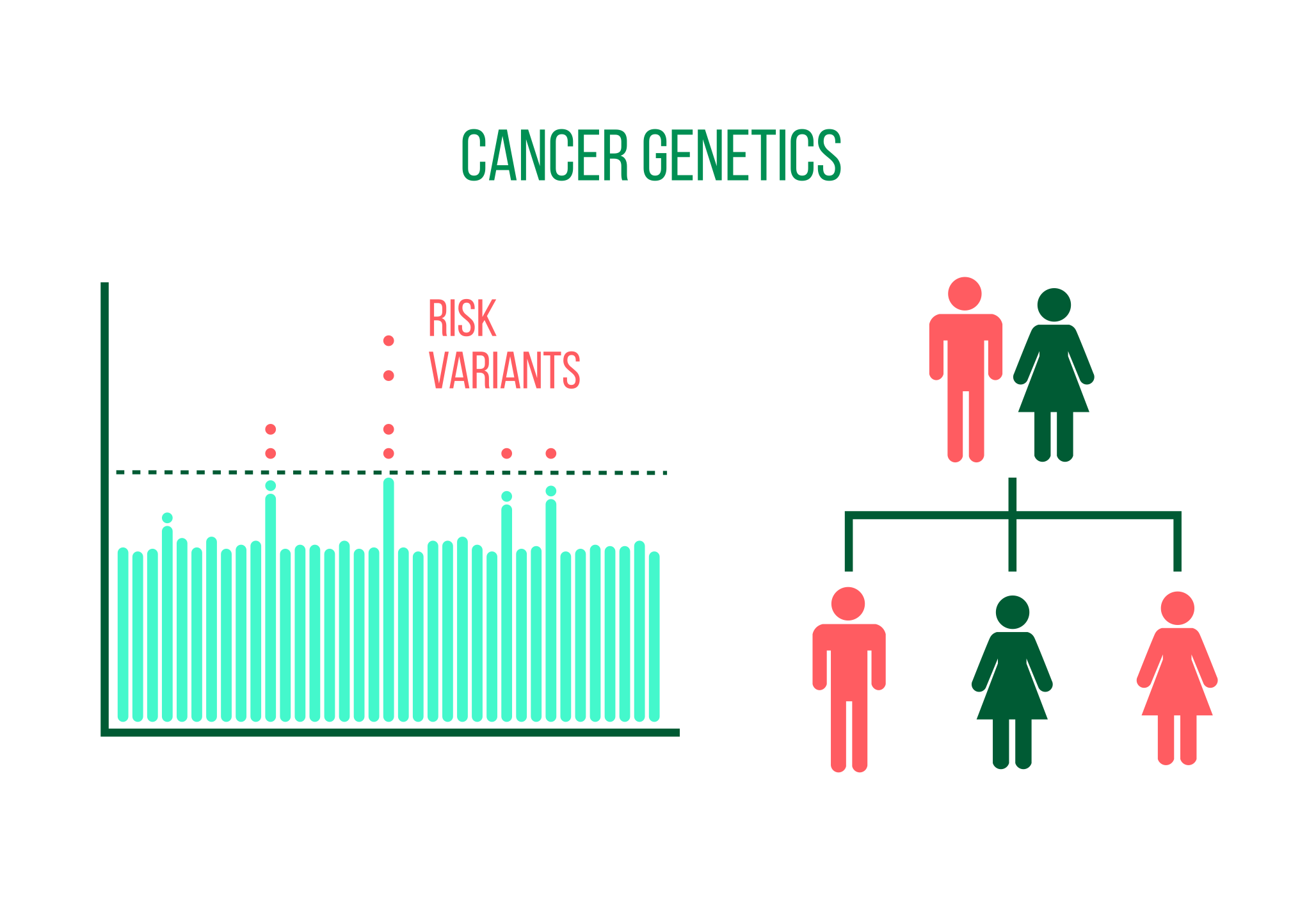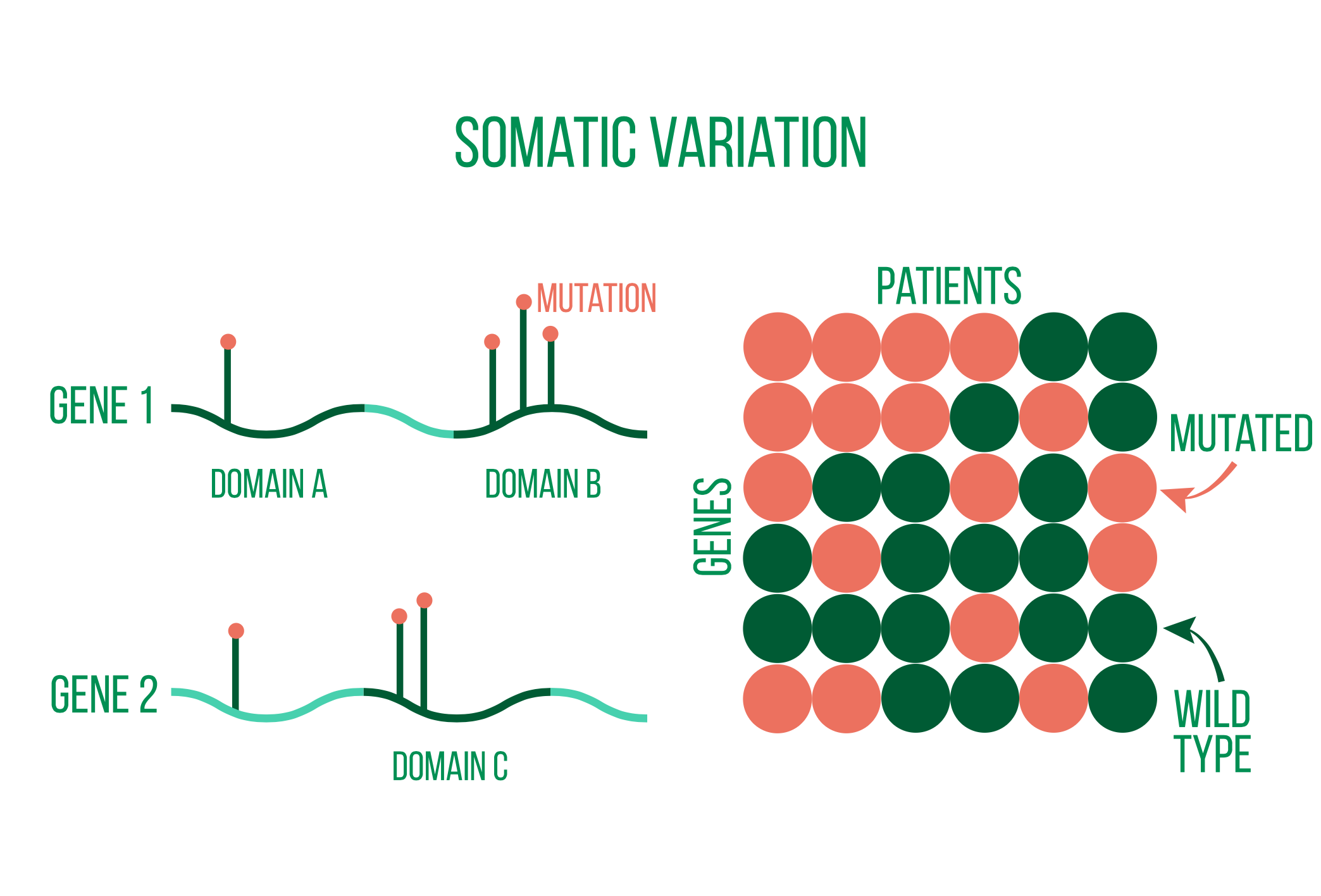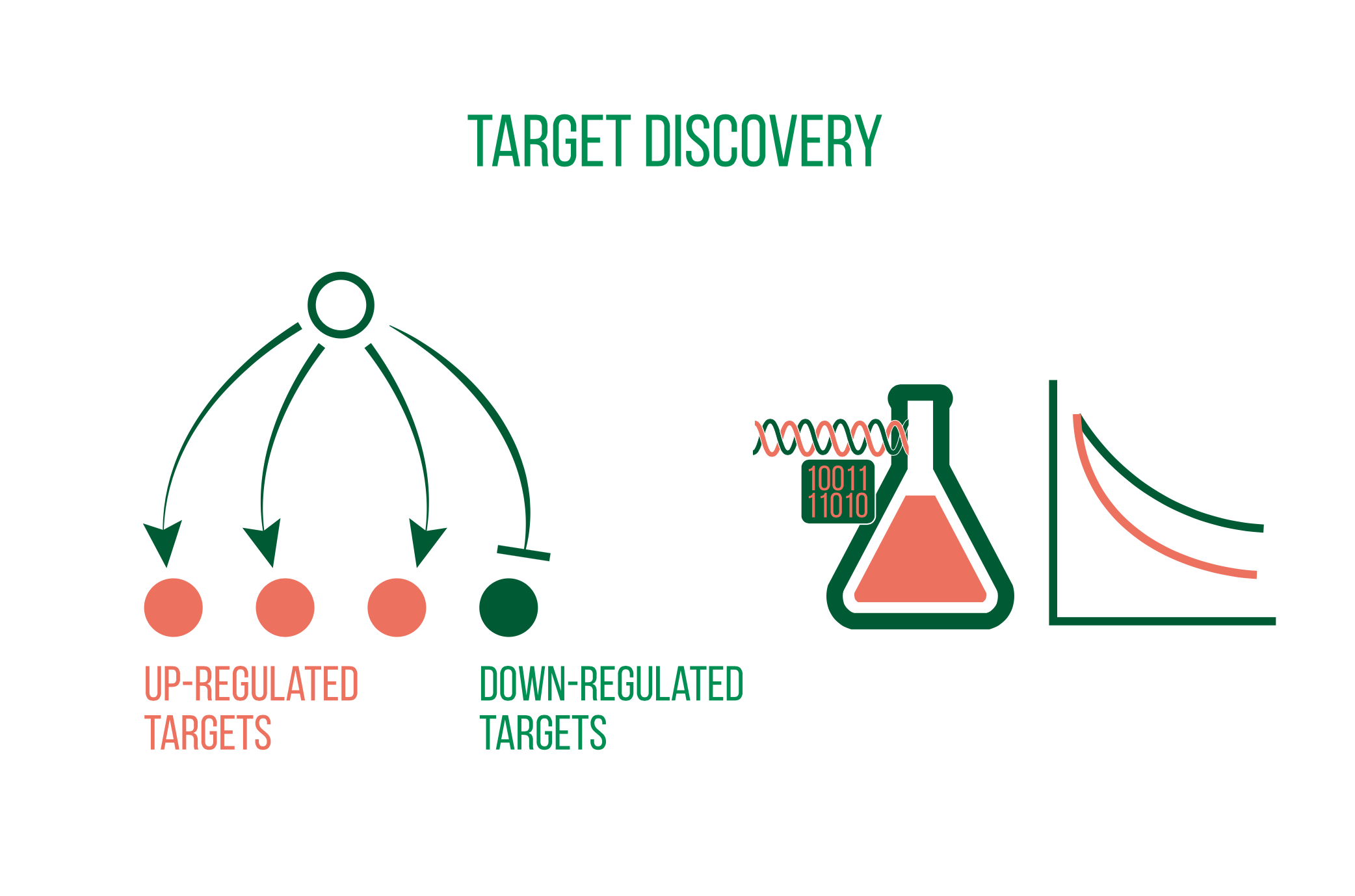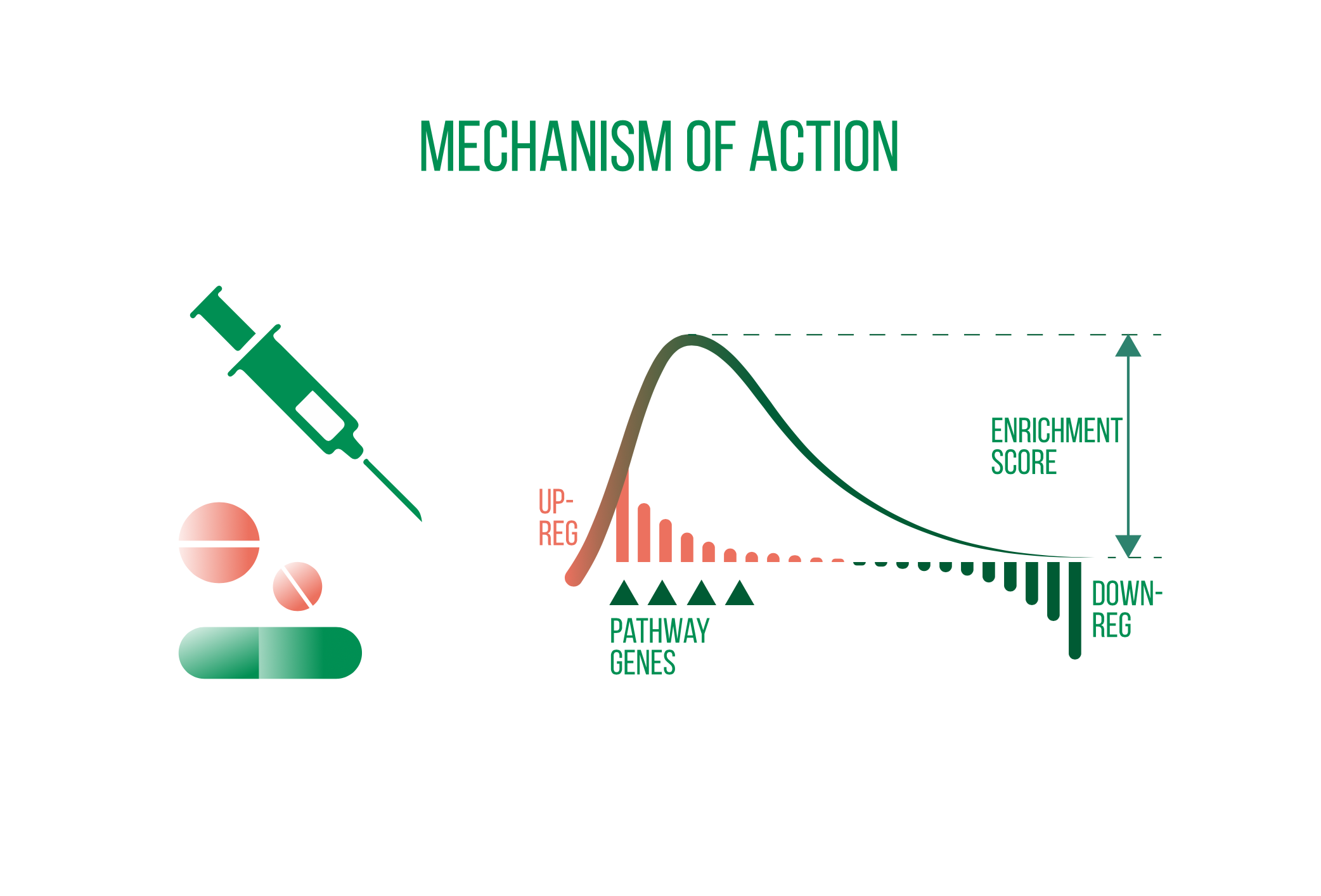hover or tap for more
Below you will find highlights of our journey in cancer research. If you feel inspired and would like to benefit from our expertise, leave us a message and we will book you a short call with our bioinformatician.
Why and how does cancer develop? What modifications to the metabolic processes, pathways, and DNA enable a tumor to develop, spread, and resist treatment? How does normal cellular differentiation relate to tumorigenic reprogramming?
Our expertise in cancer biology spans fundamental research into a variety of high-throughput molecular data types and cancer types. We have investigated heritable and somatic variants and their downstream molecular effects, as well as the evolution and microenvironment of tumors, to name just a few aspects of cancer biology, along with our partners and clients.
We have you covered, bioinformatically speaking, whether your goal is to characterize an understudied malignancy or delve deeply into the molecular biology of a more prevalent cancer.
DNA sequencing and analysis

It takes a long, expensive, and risky process to develop a new cancer treatment. Modern bioinformatics and high-throughput measurements have a lot to offer along the way to speed up the procedure and boost the likelihood of success.
Based on both openly available and confidential molecular and clinical data, we can assist in identifying targets for a particular disease. On the other hand, openly available information on molecular drug perturbation profiles enables searching for fresh uses for currently available medications.
Measurements from transcriptomic, epigenomic, and proteomic technologies can be used to investigate the molecular mechanism of action in both preclinical and clinical research on a new treatment. This enables further treatment optimization and the exclusion of off-target effects.
Single cell sequencing and analysis
